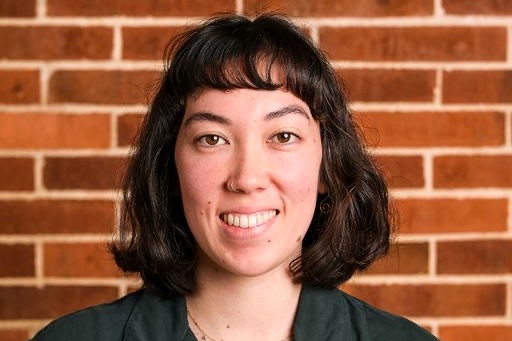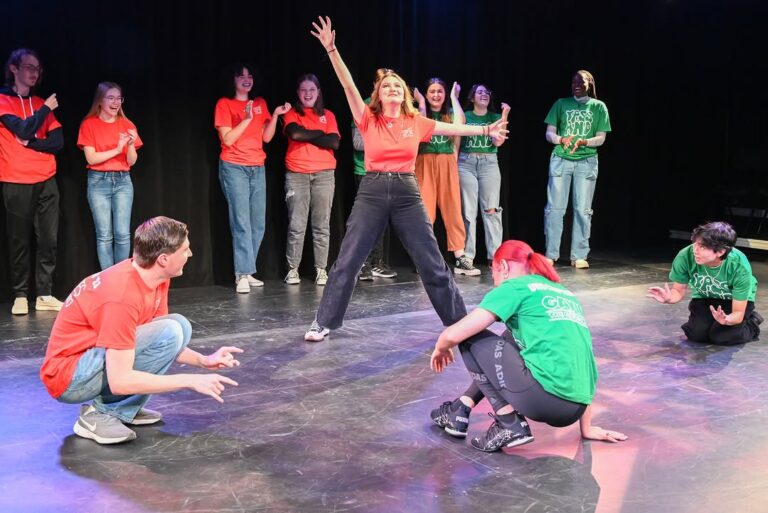Have you ever participated in a vibrant online discussion, only to see it hijacked by a user or users bent on going off issue, venting, and/or name-calling?
Well, if an MSU College of Arts & Letters research team—including professors, post-doc, graduate and undergraduate students—has its way, that may happen a lot less in the future thanks to a new software app, named The Faciloscope, that the group is developing with other researchers in the field.

Research team member Professor William Hart-Davidson in the Department of Writing, Rhetoric and American Cultures notes “We’ve seen that we can provide some resources for people moderating multiple discussions,” Hart-Davidson says, “ranging from flagging activity that bears watching, i.e. negative or positive examples; good info vs. trolling, and on up to banning a user. We can see also who is contributing in a positive or a negative way and even show a pattern.”
The research was funded by two Institute for Museum and Library Services grants that ran consecutively over a six-year period led by WRAC Professor and Chair Jeff Grabill in partnership with the Science Museum of Minnesota and the Museum of Life and Science in Durham, North Carolina.
Ryan Omizo led the app development as a post-doc researcher in WIDE and a fixed-term faculty member in WRAC. Omizo has since taken a tenure-track position at the University of Rhode Island where he is assistant professor in the department of Writing and Rhetoric.
Minh-Tam Nguyen, a third-year Ph.D. student in WRAC who is studying digital rhetoric, and Ian Clark, a junior undergraduate student in the College’s new experience architecture program, have also played important roles.
As a member of Grabill’s research team, Nguyen helped ensure the facilitation app met the needs of the museum educators for whom it was intended. Clark worked on design of the data visualizations and user interface, and helped with research to build the text corpus for training the machine-learning algorithm.
“Under the first grant, we sought to evaluate online facilitation in a consistent way,” says Hart-Davidson. “That only involved instances where we marked online discussions by hand. On the second grant, we sought to zero in on facilitation practices being used and identify the 5-6 high-value facilitation moves.”
For the app, the group identified three, high-value facilitation “moves” for moderators to use that often move conversations along. These include:
- Staging—putting a fact out there to stimulate or set up the conversation
- Evoking—trying to connect ideas using someone’s else’s comment(s)
- Inviting—a more direct version of evoking, such as “I’m going to ask (name) to weigh in on this.”
The latter, Hart-Davidson says, is only used in reference to something said earlier, such as, “So, you mean something like …, or “Are we sure that …?” These moves can be used by moderators in response to negative valence evoking behavior (trolling), or to help move the discussion along or bring the conversation back to the central issue(s).

The research team is specifically interested in facilitation techniques that engender change or evidence of learning, and in how those facilitation techniques can be used in a variety of different online environments. The group is particularly concerned with facilitation—such as listening, questioning, involving, encouraging, and redirecting—that plays an important role in creating strong learning environments and creating good outcomes.
“For instance, when we do X, then Y occurs, and so on,” Hart-Davidson says. “Next, we want to know if we can use it to train moderators and create a feedback tool with a representation on screen.
That feedback tool is Faciloscope, which is part of an online “facilitation toolbox,” that can be accessed at facilitation.matrix.msu.edu
“We invite and look forward to continuing our work with museums, but also with new uses such as seeing if we can identify and ameliorate trolling behavior,” Hart-Davidson says. “That’s one way in which we can carry this work forward.
“We think it has decent commercial potential. We have reason to believe that, once we put it out there, it will be used by many more people and in many more applications. And we’d like to see it used for a lot of things that haven’t been done before; things we haven’t even thought of.”
For instance, he points to early interest from Speakup NC, a North Carolina-based not-for-profit project. Noting that bullies and trolls have often been allowed to take over online comment sections, Speakup NC is committed to “Elevating public discourse one comment at a time.”
“Speakup NC hopes to explore how The Faciloscope can foster better discussions and public interaction on sites operated by newspapers, civic organizations, and the like,” Hart-Davidson says. “At the same time, we’ve also received interest from other educational institutions including Carnegie Mellon, MIT and Simon Fraser University in British Columbia, all leaders in the area of science and the World Wide Web.
Hart-Davidson adds that high-level interest such as this will be important in advancing future developments.
“Sifting through and making sense of Big Data, and in this case, unstructured data—i.e. discourse—can be messy work. There is a huge world of self-sponsoring moderators out there. We want to take care of them.”


